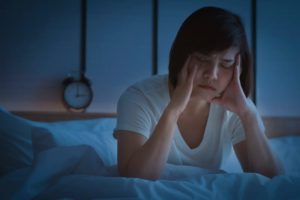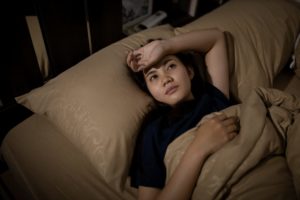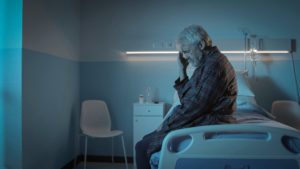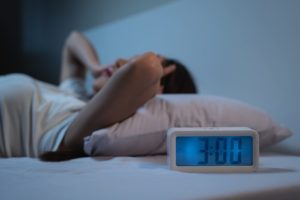When you buy through our links, we may earn a commission. Products or services may be offered by an affiliated entity. Learn more.
Symptoms of Insomnia
Approximately 10% to 30% of adults experience insomnia symptoms, or persistent difficulty falling or staying asleep on a nightly basis. The signs and symptoms of insomnia vary from person to person, and largely depend on whether the insomnia is a chronic or short-term condition.
Struggling to Stay Awake? Take an At-Home Sleep Test
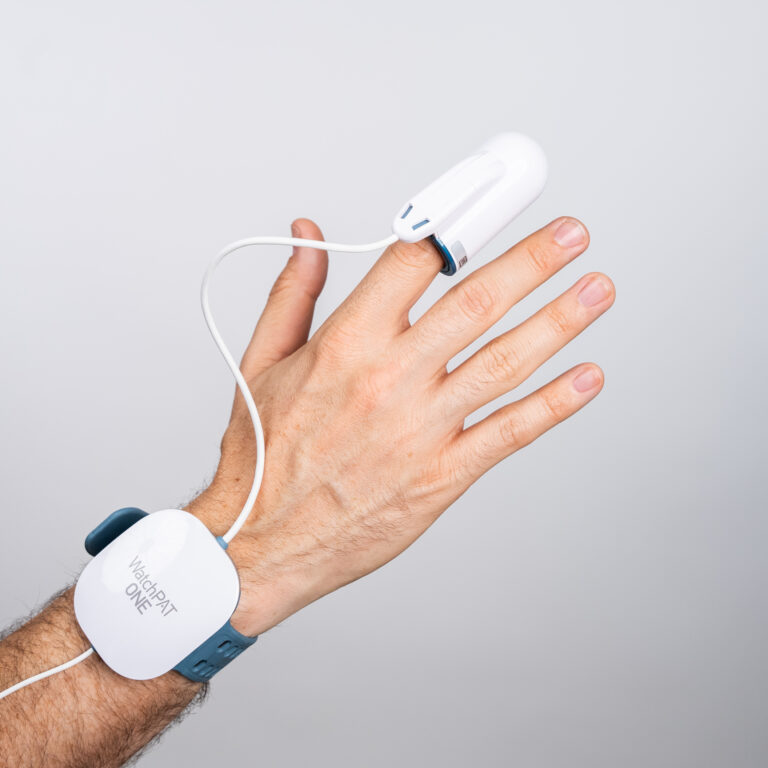
our partner at sleepdoctor.com
10% off Home Sleep Tests
Buy Now“Truly grateful for this home sleep test. Fair pricing and improved my sleep!”
Dawn G. – Verified Tester
Chronic Insomnia Symptoms
To receive a chronic insomnia diagnosis, patients must experience symptoms at least three times per week for at least three months. A diagnosis for chronic insomnia hinges on two other factors: symptoms despite adequate opportunities for sleep and resulting daytime impairments.
Difficulty falling asleep is known as sleep onset insomnia, while difficulty staying asleep is known as sleep maintenance insomnia. In some cases, people with insomnia encounter issues with both sleep onset and sleep maintenance. Sleep onset and sleep maintenance problems have been documented across all age groups. Periods of sleep latency (the amount of time it takes to fall asleep) or wakefulness during the night may constitute chronic insomnia if they exceed 20 minutes for children and young adults, or 30 minutes for adults.
People with chronic insomnia may also frequently wake up earlier than they wish. Many patients – most commonly children and older adults who need caregiver supervision – also resist the idea of following a healthy sleep schedule. Additionally, people with insomnia often experience one or more of the following impairments during the day after a bout with insomnia-affected sleep:
- Fatigue and malaise
- Difficulty concentrating, paying attention, or remembering things
- Impairments to their social, professional, and academic performance
- Irritability and mood disturbances
- Excessive daytime sleepiness
- Hyperactivity, aggression, and other behavioral issues
- Increased risk for errors and accidents
Short-Term Insomnia Symptoms
The symptoms and diagnostic criteria for short-term insomnia are quite similar to those for chronic insomnia, but there is one key difference: patients have experienced sleep onset or maintenance problems for fewer than three nights per week and/or less than three months.
It’s also important to distinguish short-term insomnia from disorders characterized by temporary circadian rhythm misalignments and associated sleep problems due to environmental factors. Examples include shift work sleep disorder that largely affects people who work at night, and jet lag that affects international travelers. These disorders often involve sleep onset and sleep maintenance difficulties, but insomnia is a symptom, rather than the underlying cause. Short-term insomnia occurs despite a lack of circadian misalignment.
While short-term insomnia can be an isolated condition, there is often an underlying variable that precipitates the insomnia symptoms. Short-term insomnia may be comorbid with a mental health disorder, medical condition, or substance abuse. Daytime stressors related to work or family life can also lead to short-term symptoms. That said, some people experience short-term insomnia without any precipitating factors.
Many people with short-term insomnia will see their symptoms gradually taper off, especially if their insomnia has occurred alongside a distressing event or temporary condition. If left unaddressed, however, short-term insomnia can develop into a chronic condition that requires more intervention.
Complications of Insomnia
Chronic insomnia can take a major toll on a person’s overall health and wellbeing. It can increase your risk for certain medical problems and also exacerbate pre-existing conditions, such as:
- Asthma and other respiratory and breathing problems
- Cardiovascular problems such as arrhythmia, high blood pressure, heart disease, and heart failure
- Anxiety, depression, and suicidal thoughts
- Substance abuse
- Chronic pain
- Pregnancy complications, including increased pain during labor, premature birth, and a low birth weight for the baby
- Inflammations and other problems with the immune system that make it harder for the body to stave off germs and infections
- Metabolic issues that affect hormonal releases regulating appetite and digestion, which in turn can lead to obesity and other health problems
When to See a Doctor about Insomnia
Generally speaking, you should consult with your doctor or another credentialed physician if ongoing lack of sleep is negatively impacting your mood, performance, and other aspects of your daily life. Even if you haven’t experienced symptoms three times per week or for at least three months, you may qualify for a short-term insomnia diagnosis.
Sleep diaries can serve as helpful resources for your doctor. For a couple of weeks leading up to your appointment, take notes about time asleep and awake, sleep latency patterns, wakefulness episodes, and other aspects of your nightly sleep cycle. You should also document how you feel during the day, how often you exercise, and how much caffeine or alcohol you consume.
The first step of an insomnia diagnosis usually consists of a medical exam and questionnaire. These components help the doctor determine whether your insomnia is an isolated condition, or if you’re experiencing symptoms due to other underlying factors. They can also use these tests to rule out other sleep disorders such as sleep apnea.
Once these initial steps have been completed, your doctor may prescribe one or more of the following three tests:
- Sleep study: Some sleep studies monitor sleep latency, wakefulness, and other data over the course of one full night. You can complete these studies at a sleep center or at home, depending on the doctor’s recommendation. Other studies include multiple sleep latency tests, conducted during a series of naps, and daytime maintenance of wakefulness tests that measure how you feel and how well you perform during the day.
- Actigraphy: This type of monitoring test evaluates how well you sleep on a nightly basis. You’ll need to wear a small body sensor for this study, which can last anywhere from three to 14 days.
- Blood tests: As an added precaution to ensure your insomnia cannot be attributed to an underlying condition, a doctor may order these tests to check for thyroid issues and other problems that contribute to sleep loss.
Treatment for insomnia varies by specific diagnosis. For chronic insomnia, you may undergo six to eight weeks of cognitive behavioral therapy for insomnia (CBT-I) to help you fall asleep faster and sleep without waking up during the night. This therapy may be conducted online, over the phone, or in-person with a doctor, nurse, or therapist. Benzodiazepines and other sleep medications may also be prescribed. Alternatively, your doctor may recommend over-the-counter medications such as melatonin supplements or antihistamines with sleep aids.
For some people with short-term or chronic insomnia, improving sleep hygiene can reduce symptoms by a significant extent. Steps toward good sleep hygiene include maintaining a healthy bedroom that is conducive to sleep, going to bed at the same time each night (including weekends), avoiding daytime naps, and abstaining from caffeine, alcohol, and nicotine before bedtime.

Still have questions? Ask our community!
Join our Sleep Care Community — a trusted hub of sleep health professionals, product specialists, and people just like you. Whether you need expert sleep advice for your insomnia or you’re searching for the perfect mattress, we’ve got you covered. Get personalized guidance from the experts who know sleep best.
References
2 Sources
-
National Heart Lung and Blood Institute. (2020, March 2). Insomnia., Retrieved September 4, 2020, from
https://www.nhlbi.nih.gov/health-topics/insomnia -
National Heart, Lung, and Blood Institute. (2022, March 24). Sleep studies., Retrieved September 4, 2020, from
https://www.nhlbi.nih.gov/health/sleep-studies







